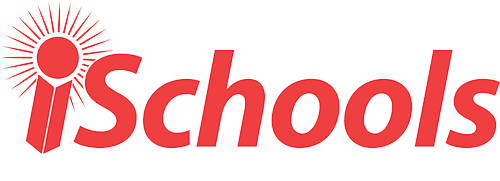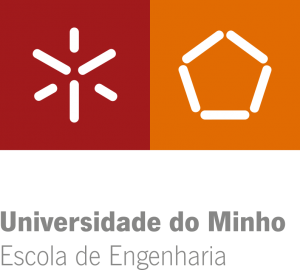Computer Communications and Pervasive Media (CCPM)
Areas
The CCPM group embraces two main areas:
1 – Computer Communications and Networks;
2 – Urban Computing;
and a laboratory, EngageLab, at the intersection of Arts and ICT. Although each one of these subgroups represent complementary scientific areas, their activities are highly complementary and integrated within the research projects.
The ubiquity of telecommunication networks, both wireless and wired, the increasing use of personal powerful devices, and recent advances in global computing platforms, gained increased importance.
It solves many problems, while creating others difficulties such as the lack of privacy. Also, world
population is still increasing, and concentrated in urban environments, rising new challenges in many domains. CCPM develops its activity in this context where people interact with the physical world while immersed in ubiquitous technological ecosystems, by addressing challenges in emerging areas such as ITS and Vehicular Networks, Collaborative Sensing, user empowerment through digital media, IoT, location based services, situated displays along with the security and privacy issues.
Collaboration with industry and other academic partners has been supported by research projects funded by FCT, ANI and European funding programmes. CCPM team members participate actively in technical committees and expert groups at international level. Integration of students in research activities is promoted through active participation of this team in Master and PhD programmes such as Telecommunications and Informatics.
Impact of research
Overall, the impact of CCPM research in 2018-2023 can be measured using two key ratios:
a) 2,98 indexed (ISI or Scopus) Q1 papers per integrated researcher and year;
b) 19 KEUR of non-FCT funded projects per integrated researcher and year.
Three major contributions
1) Internationalization activities
CCPM researchers were involved in a large number of internationalization activities, including the participation in international research networks and scientific committees, organization of major scientific events and membership of scientific committees in high quality journals and conferences.
Some highlights are:
– CCPM researchers have been involved in organising several International Conferences in the
area, namely EAI IoECom (EAI International Conference on the Internet of Everything), EAI S-
CUBE (EAI International Conference on Sensor Systems and Software), IGCI (International
Conference on Graphics and Interaction), INTETAIN (International Conference on Intelligent
Technologies for Interactive Entertainment) and FI-SN (Future Internet and Smart Networks).
– Several CCPM researchers are associate editors in journals, and have joined technical
committees of high quality conferences, such as: IEEE Globecom, IEEE INFOCOM, EuCNC, IEEE
ICC, IEEE ISCC, IPIN, ACM SAC, IEEE ICCVE, IEEE Transactions on Mobile Computing, ACM
PerDis, IEEE Pervasive Computing, Mobile Computing and Communications Review (MC2R),
Interacting with Computers (IwC), Ubicomp, CHI, DIS, ACM MUM, Interact, ACM ACE, and
MobileHCI, among others.
2) Funded R&D projects
CCPM researchers were able to achieve a total amount of non-FCT research funds of circa 1.5
MEUR, which corresponds to nearly 19 KEUR per integrated researcher and year, during this
period.
Funded R&D projects captured by CCPM include several international projects from a variety
of sources including EU Horizon 2020, POCI FEDER, Programme Erasmus+, but also national
programmes from COMPETE, QREN, IAPMEI, ANI, FCT, and major companies such as Bosch and
NOS Comunicações S.A.. Examples of projects running during this period are: CONNECT5,
Be.Neutral, InfraROB – Maintaining integrity, performance and safety of the road infrastructure
through autonomous robotized solutions and modularization; FISHY – A coordinated
framework for cyber resilient supply chain systems over complex ICT infrastructuress;
NETEDGE – Edge computing for end-users of optical networks; VSC – Visual Spaces of Change;
Sensible Car – Intelligent Sensors for Autonomous Driving, EasyRide – Experience is Everything,
among others.
3) Doctoral Programmes
The CCPM R&D group has been enrolled in several PhD Programmes, with important
interventions both at the academic curricula and mainly at supervising PhD students during the
thesis development.
The PhD Programmes where CCPM R&D members had intervention have been the Joint
Doctoral Programme in Telecommunications (MAP-Tele), the Joint Doctoral Programme in
Telecommunications (MAP-Tele), Doctoral Programme in Informatics (PDINF) and Doctoral
Programme in in Electronics and Computer Engineering (PDEEC).
The CCPM R&D group has an important role, also having two of its members at the Scientific
Coordinating Committee, in the Doctoral Programmes MAP-Tele and MAP-i, which are triple-
degree joint PhD programmes from three major universities – Minho, Aveiro, Porto – that
have been able to attract a large set of foreign PhD students.
Highlighted Publications:
Henrique M. D. Santos, “Cybersecurity: A Practical Engineering Approach”, Chapman & Hall, ISBN 9780367252427, 2022.
E. Lima, A. Aguiar, P. Carvalho and A. C. Viana, “Human Mobility Support for Personalized Data
Offloading,” in IEEE Transactions on Network and Service Management, vol. 19, no. 2, pp.
1505-1520, June 2022, doi: 10.1109/TNSM.2022.3153804.
J. Barreira, M. Bessa, L. Barbosa and L. Magalhães, “A Context-Aware Method for Authentically Simulating Outdoors Shadows for Mobile Augmented Reality,” in IEEE Transactions on Visualization and Computer Graphics, vol. 24, no. 3, pp. 1223-1231, 1 March 2018. doi: 10.1109/TVCG.2017.2676777
C. Laoudias, A. Moreira, S. Kim, S. Lee, L. Wirola and C. Fischione, “A Survey of Enabling Technologies for Network Localization, Tracking, and Navigation,” in IEEE Communications Surveys & Tutorials, vol. 20, no. 4, pp. 3607-3644, 4th Quarter, 2018 doi: 10.1109/COMST.2018.2855063
CCPM Coordinator: Paulo Carvalho
CCPM Members:
CCPM Research Groups:



